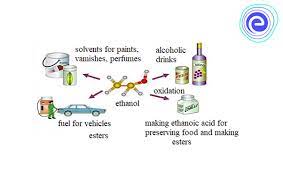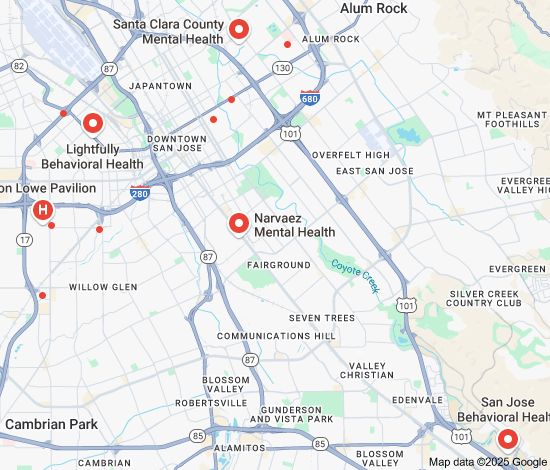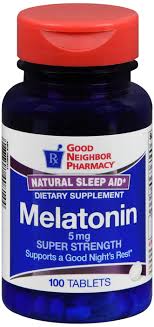Alcohol: Understanding its Uses and Effects
Alcohol is a widely consumed beverage that has been a part of human culture for centuries. From celebratory to social occasions, alcohol often plays a significant role in our lives. However, it’s important to understand both the uses and effects of alcohol to make informed decisions about its consumption.
Firstly, it’s crucial to acknowledge that alcohol can have both positive and negative effects on individuals and society as a whole. Moderation is key when it comes to alcohol consumption. Responsible drinking can enhance social interactions, promote relaxation, and even provide certain health benefits when consumed in moderation.
One of the positive uses of alcohol is its ability to act as a social lubricant. It can help individuals feel more at ease in social situations, reducing inhibitions and promoting conversation. This can be particularly beneficial for people who struggle with shyness or social anxiety.
Moreover, some studies suggest that moderate alcohol consumption may have certain health benefits. For example, red wine contains antioxidants that are believed to have a protective effect on the heart when consumed in moderation. However, it’s important to note that these potential benefits are outweighed by the risks associated with excessive drinking.
Despite these potential positives, it’s crucial to recognize the harmful effects of excessive alcohol consumption. Alcohol abuse can lead to various physical and mental health problems. Excessive drinking affects the liver, leading to conditions such as cirrhosis and alcoholic hepatitis. It also increases the risk of developing certain types of cancer, cardiovascular diseases, and mental health disorders like depression and anxiety.
Additionally, alcohol misuse can have severe consequences on personal relationships, work performance, and overall quality of life. It impairs judgment and coordination, increasing the risk of accidents and injuries. Alcohol-related incidents also contribute significantly to societal issues such as drunk driving accidents and violence.
To ensure responsible alcohol use:
- Set limits: Establish personal boundaries regarding how much you will consume during a specific period. Stick to these limits and avoid peer pressure.
- Know your body: Understand your tolerance level and how alcohol affects you personally. Different individuals may react differently to the same amount of alcohol.
- Stay hydrated: Drink water in between alcoholic beverages to stay hydrated and pace yourself.
- Never drink and drive: Always designate a sober driver or use alternative transportation options if you plan on consuming alcohol.
- Seek help if needed: If you or someone you know is struggling with alcohol abuse, don’t hesitate to reach out for professional help. There are numerous resources available to support individuals on their journey towards recovery.
In conclusion, alcohol can be enjoyed responsibly when consumed in moderation, enhancing social experiences and potentially providing certain health benefits. However, it’s crucial to understand the risks associated with excessive drinking and make informed choices about alcohol consumption. By practicing responsible drinking habits, we can ensure that our relationship with alcohol remains safe, enjoyable, and free from harm.
8 Essential Tips for Responsible Alcohol Use and Safety
- Always drink responsibly and never drink and drive.
- Know your limits – don’t overdo it or you may end up with a hangover the next day.
- Drink lots of water to stay hydrated while drinking alcohol.
- Eat something before or while you are drinking to slow down the absorption of alcohol into your bloodstream.
- Alternate between alcoholic drinks and non-alcoholic drinks like water, juice, or soda to reduce your overall intake of alcohol and stay hydrated throughout the night.
- Avoid mixing different types of alcohol as this can increase the rate at which intoxication occurs, leading to more serious health risks such as blackouts and memory loss.
- Be aware of what medications you are taking because some medications can interact with alcohol in dangerous ways that could lead to serious health issues or even death if not taken properly into account when consuming any type of alcoholic beverage(s).
- If you feel like you have had too much to drink, seek medical attention immediately as this could save your life!
Always drink responsibly and never drink and drive.
When it comes to alcohol consumption, responsible drinking is of utmost importance. It’s crucial to understand the potential risks and consequences associated with excessive alcohol intake, especially when combined with driving.
Drinking responsibly means being aware of your limits and making conscious choices about your alcohol consumption. It involves understanding how alcohol affects your body and mind, as well as recognizing when it’s time to stop or slow down. By practicing responsible drinking habits, you can ensure a safer and more enjoyable experience.
One crucial aspect of responsible drinking is never getting behind the wheel after consuming alcohol. Driving under the influence poses a significant threat to yourself, passengers, pedestrians, and other drivers on the road. Alcohol impairs judgment, coordination, reaction time, and decision-making abilities – all essential skills for safe driving.
Instead of risking lives by driving under the influence:
- Plan ahead: If you know you’ll be consuming alcohol, make arrangements for alternative transportation in advance. Designate a sober driver or use public transportation, taxis, rideshare services, or designated driver programs.
- Be a responsible host: If you’re hosting a gathering where alcohol will be served, ensure that your guests have safe options for getting home. Encourage them to use designated drivers or provide information on local transportation services.
- Support others: If you notice someone who has been drinking attempting to drive or insisting on doing so despite being impaired, intervene and offer them alternative transportation options. It’s essential to look out for one another’s safety.
- Spread awareness: Educate friends and family about the dangers of drinking and driving. Encourage open discussions about responsible alcohol consumption and promote safe choices.
Remember that even small amounts of alcohol can impair your ability to drive safely. It’s not just about legal limits; it’s about ensuring the safety of yourself and others on the road.
By always drinking responsibly and never getting behind the wheel after consuming alcohol, you are taking a proactive step towards preventing accidents, injuries, and even fatalities. Let’s prioritize the well-being and safety of everyone by making responsible choices when it comes to alcohol consumption and transportation.
Know your limits – don’t overdo it or you may end up with a hangover the next day.
Know Your Limits: Avoiding the Dreaded Hangover
We’ve all been there – waking up the morning after a night of excessive drinking with a pounding headache, nausea, and an overall feeling of regret. Hangovers can be a harsh reminder of the consequences of overdoing it with alcohol. That’s why it’s important to know your limits and avoid excessive drinking to prevent these unpleasant experiences.
Alcohol affects each person differently, and our tolerance levels vary. It’s crucial to understand how your body reacts to alcohol and set personal boundaries for yourself. Knowing your limits means being aware of how much alcohol you can consume without crossing that line into hangover territory.
One key aspect of knowing your limits is pacing yourself. Drinking slowly allows your body to process the alcohol more efficiently, reducing the likelihood of waking up with a splitting headache the next day. Sip your drink instead of gulping it down, and take breaks between alcoholic beverages to give your body time to metabolize the alcohol.
It’s also important to pay attention to the type and strength of alcoholic drinks you consume. Different beverages have varying alcohol content, so be mindful of what you’re drinking. Opt for lower-alcohol options or dilute stronger drinks with mixers or water to help moderate your intake.
Hydration is another crucial factor in preventing hangovers. Alcohol is a diuretic, meaning it increases urine production and can lead to dehydration. Make sure to drink plenty of water alongside alcoholic beverages to stay hydrated throughout the night. This can help mitigate some of the negative effects associated with excessive drinking.
Lastly, remember that peer pressure should never dictate how much you drink. Stick to your personal limits regardless of what others around you are doing or saying. Your well-being should always come first, and avoiding a hangover is just one aspect of taking care of yourself.
By knowing your limits and practicing responsible drinking habits, you can enjoy social occasions without waking up to the unpleasant aftermath of a hangover. Take control of your alcohol consumption, listen to your body, and make choices that promote a positive and enjoyable experience. Cheers to responsible drinking and hangover-free mornings!
Drink lots of water to stay hydrated while drinking alcohol.
Stay Hydrated: The Key to Responsible Drinking
When it comes to consuming alcohol, staying hydrated is essential. Drinking alcohol can lead to dehydration, as it has a diuretic effect on the body, causing increased urine production and fluid loss. To counteract this, it’s crucial to drink plenty of water while enjoying alcoholic beverages.
Hydration plays a vital role in our overall well-being, and it becomes even more important when alcohol is involved. By drinking water alongside alcoholic drinks, you can help maintain proper hydration levels and mitigate some of the negative effects of alcohol.
Alcohol dehydrates the body by inhibiting the release of an antidiuretic hormone called vasopressin. This hormone normally signals the kidneys to reabsorb water rather than excrete it as urine. As a result, without enough vasopressin, the body eliminates more fluids through urine, leading to dehydration.
By consciously drinking water in between alcoholic beverages, you can replenish your body’s fluid levels and reduce the risk of dehydration. This simple practice can help prevent symptoms like headaches, dizziness, dry mouth, and excessive thirst that often accompany dehydration.
Moreover, staying hydrated while drinking alcohol can contribute to a more enjoyable experience. Proper hydration helps maintain mental clarity and physical well-being throughout the evening. It allows you to pace yourself better and make responsible decisions regarding your alcohol consumption.
To ensure you stay hydrated while enjoying alcoholic beverages:
- Start with water: Begin your night by drinking a glass of water before consuming any alcohol. This will set a good foundation for staying hydrated throughout the evening.
- Alternate between drinks: Whenever you have an alcoholic beverage, follow it up with a glass of water. This practice not only helps maintain hydration but also slows down your alcohol intake.
- Sip on water consistently: Keep a bottle or glass of water nearby and take regular sips between drinks or whenever you feel thirsty. This habit will help you stay hydrated and avoid excessive alcohol consumption.
- Be mindful of your body’s signals: Pay attention to signs of dehydration, such as dry mouth or feeling lightheaded. If you experience these symptoms, take a break from alcohol and drink water to rehydrate.
Remember, responsible drinking involves more than just monitoring the amount of alcohol you consume. It also means taking care of your body by staying hydrated throughout the process. By prioritizing hydration and making water an integral part of your drinking routine, you can enjoy alcohol in a more balanced and responsible manner.
Eat something before or while you are drinking to slow down the absorption of alcohol into your bloodstream.
Slowing Down Alcohol Absorption: The Importance of Eating
When it comes to alcohol consumption, one important tip to keep in mind is to eat something before or while you are drinking. This simple practice can significantly slow down the absorption of alcohol into your bloodstream and help you maintain better control over your alcohol intake.
When we consume alcohol on an empty stomach, it quickly enters our bloodstream through the walls of our stomach and small intestine. This rapid absorption can lead to a quicker onset of intoxication and increase the risk of experiencing negative effects such as impaired judgment and coordination.
However, when we eat before or during drinking, the presence of food in our stomach helps to slow down this absorption process. Food acts as a barrier between alcohol and the lining of our stomach, allowing for a more gradual release into our bloodstream.
The type of food you choose to consume can also make a difference. Foods that are high in protein, healthy fats, and complex carbohydrates tend to be more effective in slowing down alcohol absorption compared to sugary or processed snacks. These nutrient-rich foods take longer to digest, providing a sustained release of energy and helping to mitigate the effects of alcohol.
In addition to slowing down alcohol absorption, eating while drinking can also help prevent excessive drinking. When we have food in our stomachs, we tend to feel fuller and more satisfied. This feeling of satiety can reduce cravings for additional drinks and help us maintain better control over our consumption.
It’s essential to remember that while eating before or during drinking can be beneficial, it does not eliminate the risks associated with excessive alcohol consumption. It’s still crucial to practice moderation and know your limits when it comes to drinking.
By incorporating this simple tip into your drinking habits, you can promote safer and more responsible alcohol consumption. So next time you plan on having a drink, make sure you grab a bite beforehand or have some snacks available. Your body will thank you for it, and you’ll be able to enjoy your drink in a more controlled and mindful manner.
Alternate between alcoholic drinks and non-alcoholic drinks like water, juice, or soda to reduce your overall intake of alcohol and stay hydrated throughout the night.
Smart Sipping: Alternating Between Alcoholic and Non-Alcoholic Drinks
When it comes to enjoying alcoholic beverages responsibly, one effective tip is to alternate between alcoholic drinks and non-alcoholic options. By incorporating water, juice, or soda into your drinking routine, you can reduce your overall alcohol intake while staying hydrated throughout the night.
Why is this strategy important? Well, alcohol is a diuretic, meaning it increases urine production and can lead to dehydration if consumed excessively. This dehydration not only leaves you feeling less than your best the next day but also contributes to the unpleasant symptoms of a hangover.
By interspersing your alcoholic drinks with non-alcoholic alternatives, you give your body a chance to rehydrate. Water is an excellent choice as it replenishes fluids without adding any additional sugars or calories. If you prefer something with flavor, opt for juices or sodas that are free from alcohol. These options not only provide hydration but also offer a refreshing change of taste.
Alternating between alcoholic and non-alcoholic drinks has additional benefits beyond hydration. It helps pace your alcohol consumption, allowing you to enjoy the social aspects of drinking without overindulging. This mindful approach can help prevent excessive intoxication and its associated risks such as impaired judgment and coordination.
Here are some practical tips for implementing this strategy:
- Start the night with a non-alcoholic drink: Begin by quenching your thirst with a glass of water or another non-alcoholic beverage before reaching for an alcoholic drink. This sets a healthy foundation for the evening.
- Alternate between drinks: After each alcoholic beverage, follow it up with a non-alcoholic option. This pattern ensures that you maintain balance throughout the night.
- Stay mindful: Pay attention to how much alcohol you’re consuming and how it’s affecting you. Listen to your body’s signals and adjust accordingly.
- Experiment with mocktails: If you want more variety, try ordering mocktails or non-alcoholic versions of your favorite cocktails. These creative concoctions can be just as enjoyable and satisfying.
By adopting the practice of alternating between alcoholic and non-alcoholic drinks, you can have a more controlled and enjoyable drinking experience. Not only will it reduce your overall alcohol intake, but it will also keep you hydrated and feeling better throughout the night and into the next day. So, next time you raise a glass, remember to alternate and savor the moment responsibly.
Avoid mixing different types of alcohol as this can increase the rate at which intoxication occurs, leading to more serious health risks such as blackouts and memory loss.
The Importance of Avoiding Mixing Different Types of Alcohol
When it comes to alcohol consumption, it’s essential to be mindful of the choices we make. One important tip to remember is to avoid mixing different types of alcohol. While it may seem tempting to experiment with various beverages, this practice can have serious consequences for our health and well-being.
Mixing different types of alcohol can lead to a phenomenon known as rapid intoxication. When we consume different alcoholic beverages simultaneously, the body has a harder time metabolizing the alcohol due to variations in their chemical compositions. This can result in a quicker absorption rate, leading to higher blood alcohol levels and a more intense state of intoxication.
One significant risk associated with rapid intoxication is an increased likelihood of experiencing blackouts and memory loss. These periods of amnesia can be frightening and dangerous as they involve gaps in memory during which individuals may engage in risky behaviors or put themselves in vulnerable situations without any recollection.
Moreover, mixing different types of alcohol can also put additional strain on the liver and other vital organs. The liver is responsible for metabolizing alcohol and removing toxins from our bodies. When we overload it with various types of alcohol, it becomes overwhelmed and may not be able to process everything efficiently. This can lead to liver damage or other health complications over time.
To ensure your safety and well-being when consuming alcohol:
- Stick to one type: Choose one type of alcoholic beverage for the evening rather than mixing different varieties.
- Pace yourself: Drink slowly and allow your body time to process the alcohol you’ve consumed before having more.
- Alternate with non-alcoholic beverages: Intersperse your alcoholic drinks with water or other non-alcoholic options to stay hydrated and reduce overall alcohol consumption.
- Know your limits: Be aware of your personal tolerance level and understand when it’s time to stop drinking.
- Plan ahead: If you’re attending an event or gathering where alcohol will be served, consider designating a sober driver or arranging alternative transportation in advance.
By following these guidelines and avoiding the mixing of different types of alcohol, you can help ensure a safer and more enjoyable drinking experience. Remember, responsible alcohol consumption is key to maintaining your health and minimizing the risks associated with excessive drinking.
Be aware of what medications you are taking because some medications can interact with alcohol in dangerous ways that could lead to serious health issues or even death if not taken properly into account when consuming any type of alcoholic beverage(s).
The Importance of Medication Awareness When Consuming Alcohol
When it comes to alcohol consumption, it’s essential to be aware of the medications you are taking. Mixing certain medications with alcohol can have dangerous consequences, potentially leading to severe health issues or even fatal outcomes if not taken into account.
Many medications, both prescription and over-the-counter, can interact negatively with alcohol. These interactions can vary from mild to severe and may depend on the specific medication and individual factors such as age, weight, and overall health.
Alcohol can intensify or diminish the effects of certain medications, making them less effective or more potent than intended. It can also increase the risk of adverse side effects or unexpected reactions. This is because both alcohol and medications can affect the central nervous system, leading to drowsiness, dizziness, impaired judgment, and decreased coordination.
Some common examples of medications that should not be mixed with alcohol include:
- Pain relievers: Over-the-counter pain relievers like acetaminophen (Tylenol) and nonsteroidal anti-inflammatory drugs (NSAIDs) such as ibuprofen (Advil) or naproxen (Aleve) can cause liver damage when combined with excessive alcohol consumption.
- Antidepressants: Mixing alcohol with antidepressant medications can intensify the sedative effects of both substances, leading to increased drowsiness and impaired cognitive function.
- Antibiotics: Certain antibiotics like metronidazole (Flagyl) and trimethoprim-sulfamethoxazole (Bactrim) may have adverse reactions when combined with alcohol. These interactions can range from nausea and vomiting to more severe symptoms like rapid heart rate and changes in blood pressure.
- Sleep aids: Alcohol should not be consumed along with sleep aids or sedatives as it can enhance their sedative effects, potentially causing excessive drowsiness or respiratory depression.
- Antihistamines: Mixing alcohol with antihistamines, commonly found in allergy medications, can lead to increased drowsiness and impaired coordination.
It’s crucial to consult with a healthcare professional or pharmacist about the potential interactions between your medications and alcohol. They can provide specific guidance based on your individual circumstances and advise whether it is safe to consume alcohol while taking certain medications.
Remember, your health and safety should always be the top priority. Being aware of potential interactions between alcohol and medications is an important step towards making informed decisions about your overall well-being. By understanding the risks involved, you can ensure that you consume alcohol responsibly and avoid any potential harm that may arise from mixing medications with alcoholic beverages.
If you feel like you have had too much to drink, seek medical attention immediately as this could save your life!
The Importance of Seeking Medical Attention When You’ve Had Too Much to Drink
Alcohol consumption, when done responsibly and in moderation, can be an enjoyable part of social gatherings. However, there may be instances when we unintentionally overindulge and find ourselves feeling the effects of excessive alcohol consumption. In such situations, it is crucial to recognize the signs and seek medical attention immediately, as doing so could potentially save your life.
When you feel like you have had too much to drink, it’s important not to ignore the warning signs your body may be sending you. Excessive alcohol consumption can lead to alcohol poisoning, a serious condition that requires immediate medical intervention. Symptoms of alcohol poisoning include confusion, vomiting, seizures, slow or irregular breathing, and unconsciousness.
Seeking medical attention in these situations is vital for several reasons. First and foremost, healthcare professionals are trained to assess the severity of alcohol poisoning and provide appropriate treatment. They can monitor your vital signs, administer necessary medications or interventions if needed, and ensure your safety throughout the process.
Additionally, seeking medical attention can prevent potential complications that may arise from alcohol poisoning. Excessive alcohol consumption can lead to dehydration, electrolyte imbalances, and dangerously low blood sugar levels. Medical professionals can address these issues promptly and prevent further harm to your body.
Furthermore, reaching out for medical help demonstrates a responsible approach towards your own well-being. It shows that you prioritize your health and safety above all else. Remember that there is no shame in seeking assistance when it comes to matters concerning your health.
If you find yourself in a situation where you believe you have had too much to drink or suspect someone else has, don’t hesitate to call emergency services or ask a trusted friend for help. Time is of the essence when it comes to alcohol poisoning cases.
In conclusion, recognizing when you’ve had too much to drink and seeking immediate medical attention is crucial for your well-being. Alcohol poisoning is a serious condition that requires professional intervention. By taking swift action, you can ensure your safety and potentially save your life. Remember, it’s always better to err on the side of caution when it comes to excessive alcohol consumption.




